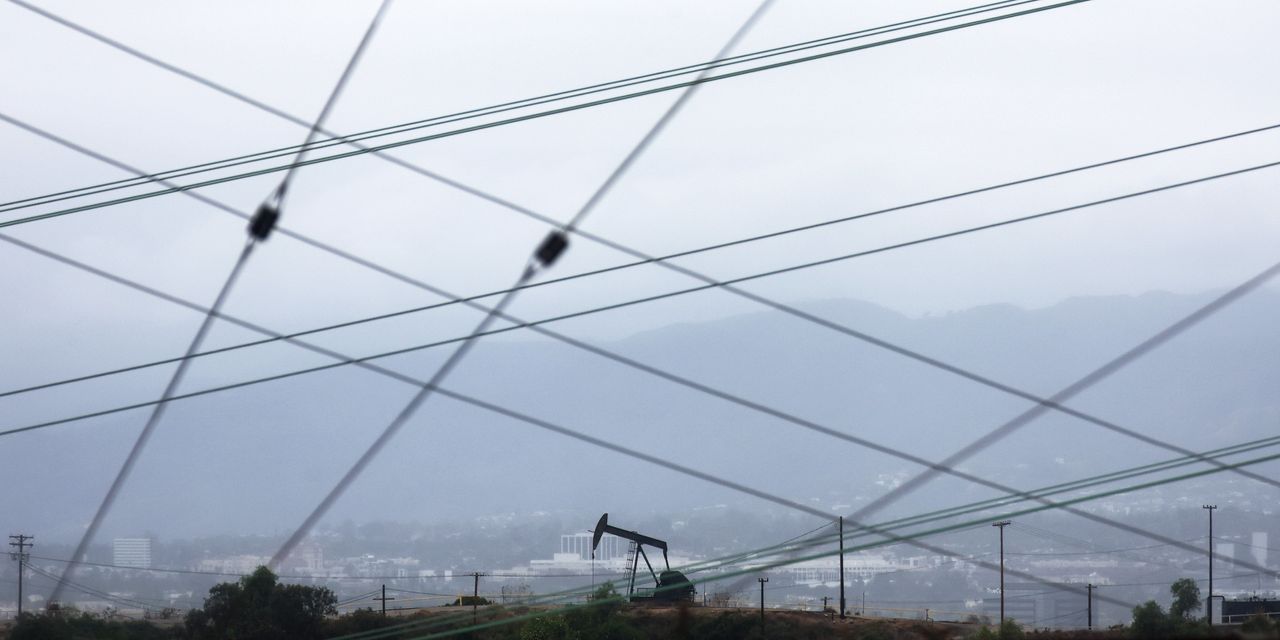Oil futures edged lower Friday, trimming a weekly gain as investors continue to struggle with an uncertain demand outlook.
Price action
-
West Texas Intermediate crude for July delivery
CL00,
+0.10% CL.1,
+0.10% CLN23,
+0.10%
fell 18 cents, or 0.3%, to $70.44 a barrel on the New York Mercantile Exchange, on track for a weekly rise of 0.4%. -
August Brent crude
BRN00,
+0.15% BRNQ23,
+0.15% ,
the global benchmark, was down 12 cents, or 0.2%, at $75.55 a barrel on ICE Futures Europe, headed for a 1.1% weekly gain. -
Back on Nymex, July gasoline
RBN23,
+0.49%
rose 0.1% to $2.645 a gallon, while July heating oil
HON23,
+0.90%
was up 0.4% at $2.489 a gallon. Gasoline was up 2% for the week, while heating oil has gained 5.4%. -
July natural gas
NGN23,
+1.14%
rose 2.2% to $2.588 per million British thermal units, set for a weekly jump of nearly 15%.
Market drivers
Crude prices were heading on Friday for a weekly rise following back-to-back declines, after finding support in Thursday’s session when The Wall Street Journal reported that Chinese authorities were preparing aggressive economic stimulus measures. Disappointment in the economic rebound by the world’s second-largest energy consumer has been a weight on crude prices in 2023.
Analysts said crude still faces skepticism over the demand outlook.
“Concerns about demand continue to predominate on the oil market: the prospect of further Fed rate hikes that could put the brakes on demand in the U.S., which is still the biggest oil consumer country, has been weighing on sentiment, as has an unexpectedly sharp rise in U.S. oil stocks,” said Barbara Lambrecht, commodity analyst at Commerzbank, in a note.
The Energy Information Administration on Wednesday reported that U.S. commercial crude inventories rose by 7.9 million barrels for the week ending June 9. The EIA data also included an upward adjustment of 1.937 million barrels a day to petroleum supplies. Multiplied by 7 days, that’s about 13.56 million barrels added to petroleum stockpiles.
Traders have brushed off a warning though from the International Energy Agency this week that the market is set to be significantly undersupplied in the second half of the year. “It seems that the market needs more ‘hard’ facts to confirm any tight supply on the market,” Lambrecht wrote.
Natural-gas futures, meanwhile, have rallied. They ended sharply higher Thursday after the EIA reported a smaller-than-expected climb of 84 billion cubic feet in U.S. natural-gas supplies in storage for the week ending June 9.
Read the full article here











